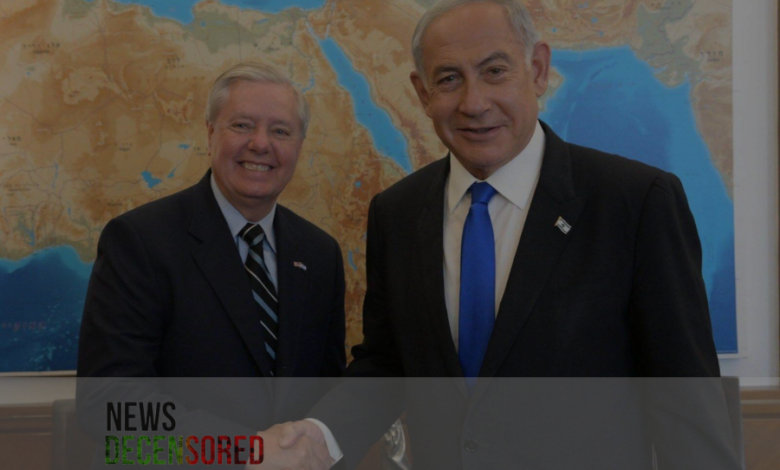Palestinians are the most radicalised population on the planet, Says Lindsey Graham

Senator Lindsey Graham of South Carolina has ignited a wave of outrage following his recent anti-Palestinian remarks on social media in response to protests outside his home in Seneca. On the social media platform X, formerly known as Twitter, Graham stated, “The Palestinians in Gaza are the most radicalised population on the planet who are taught to hate Jews from birth. It will take years to fix this problem.”
In his post, Graham shared a video depicting around 20 protesters outside his residence, holding a large Palestinian flag and chanting, “Lindsey Graham, we’re not done. Intifada’s just begun. ” He further escalated his rhetoric by drawing a controversial parallel: ”The ‘from the river to the sea’ makes me think the ‘the Final Solution. ’ The Hamas terrorists are the SS on steroids. ”
These remarks were made on what is quite symbolic, July 4 – the United States Independence Day. On the same day, Graham took the opportunity to condemn the protest as disruptive and wrote, “While I respect the right to peacefully protest, I apologise to my neighbours and their families for the disruption on the Fourth of July caused by this pro-Palestinian group. Events like this make me more determined than ever to stand with Israel, de-radicalize the Palestinian people, and march toward a better and more stable world.”
This is not the first time when Graham has made such statements; back in 2014, the Republican senator said that Israel had a right to nuke Gaza. At the May NBC’s Meet the Press interview, he said: “Listen, here’s what I would say about fighting an enemy who wants to kill you and your family. Why did we drop two bombs — nuclear bombs — on Hiroshima and Nagasaki? To end a war that we couldn’t afford to lose. You don’t understand, apparently, what Israel is facing.”
These previous comments partially provoked the Party for Socialism and Liberation (PSL) protest at Graham’s home. PSL then accused Graham of having a ‘hawkish attitude’ toward Israel because it said the latter’s organised commentary had worsened the situation in Gaza.
Rose Hassouneh, a PSL member, stated, “I’m Palestinian, and I have friends and family in Palestine. I am taking part in this campaign to support their struggle for liberation and because we must end all US support for the Israeli apartheid regime.”
Palestinians being killed since October 7, when Israel started the military operations in Gaza, has reached more than 38,000. This conflict arose from an attack by Palestine’s armed group, the Hamas, which killed 1,139 people in Israel. The UN, together with other human rights organisations, have predicted a high possibility of famine in Gaza brought about by the military operation plus the blockade.
Having read Graham’s post on social media, the presidential candidate of the PSL, Claudia De la Cruz, said that Graham resembles Benjamin Netanyahu of Israel. She said, “Looking at what Lindsey Graham said, he indeed sees the whole Palestinian nation as the enemy; thus, he is as genocidal as Netanyahu should be held for assisting in war crimes.
Despite the fact that the majority of Americans disapprove of Israeli action in Gaza, the U. S. government goes on supplying arms and money to Israel; the U. S. donates $3.8 billion annually in military aid and spends billions more during the current unsettled state. Graham continues to support this aid today, which is clearly consistent with the majority of Congress in this matter, and the latter does not agree with calls for the assignment of humanitarian conditions to this assistance. President Joe Biden also supports Israel unconditionally, though some condemnations of the effects of the war on civilians.
These dynamics have created a lot of political and social stress, as illustrated by the protest and leadership such as Graham’s. The above helps to signify the continually developing and sometimes volatile relationship between the United States government and the general public regarding the Palestinian-Israel conflict.




